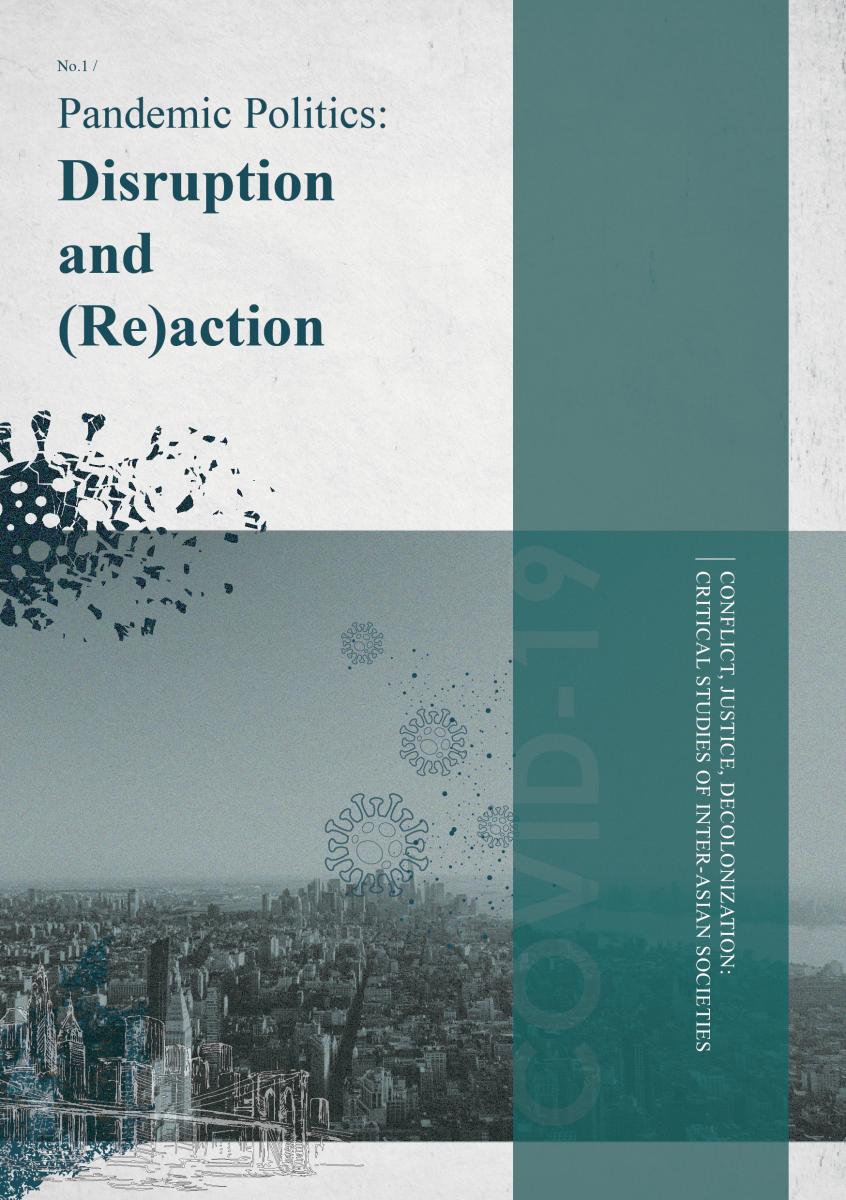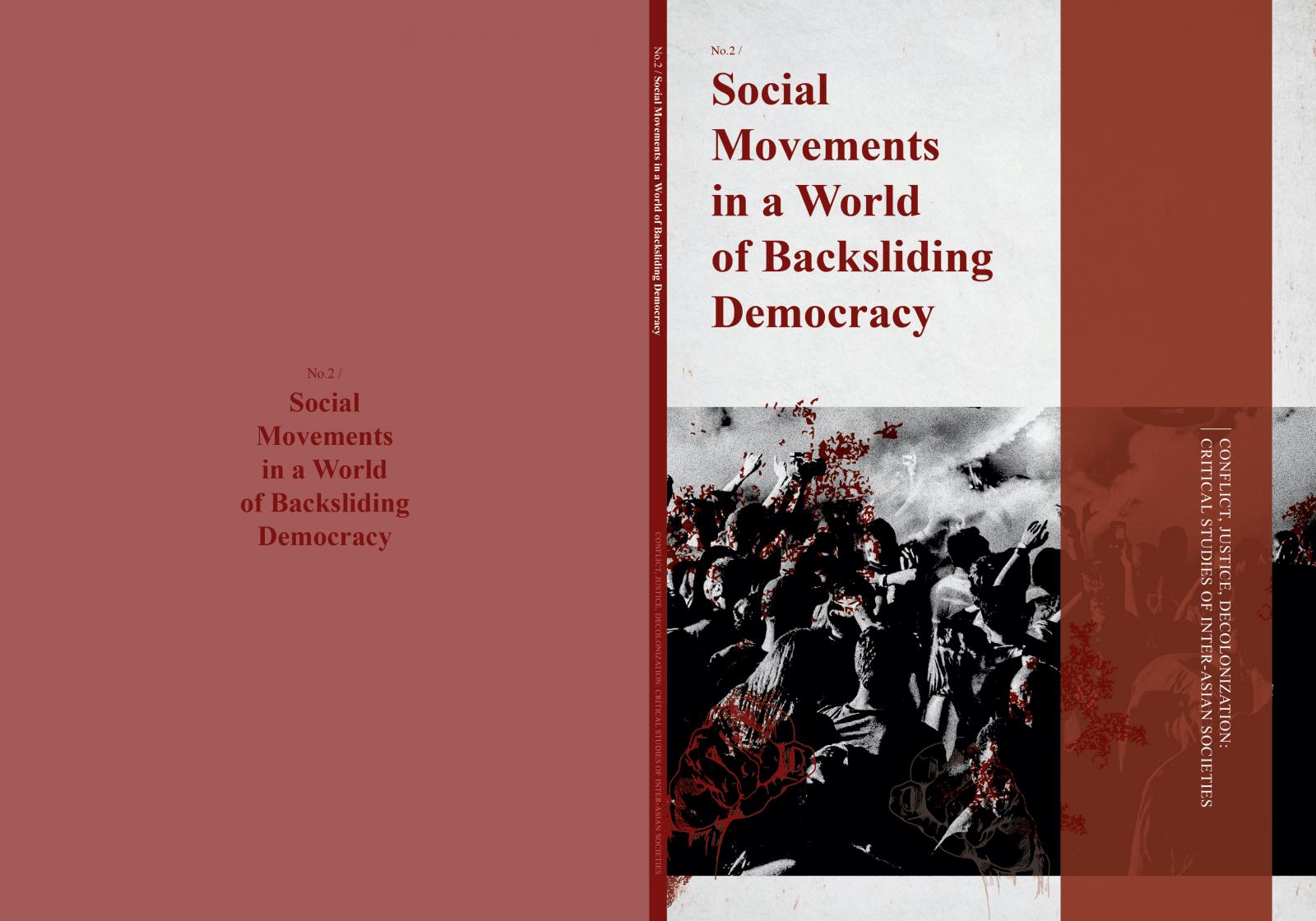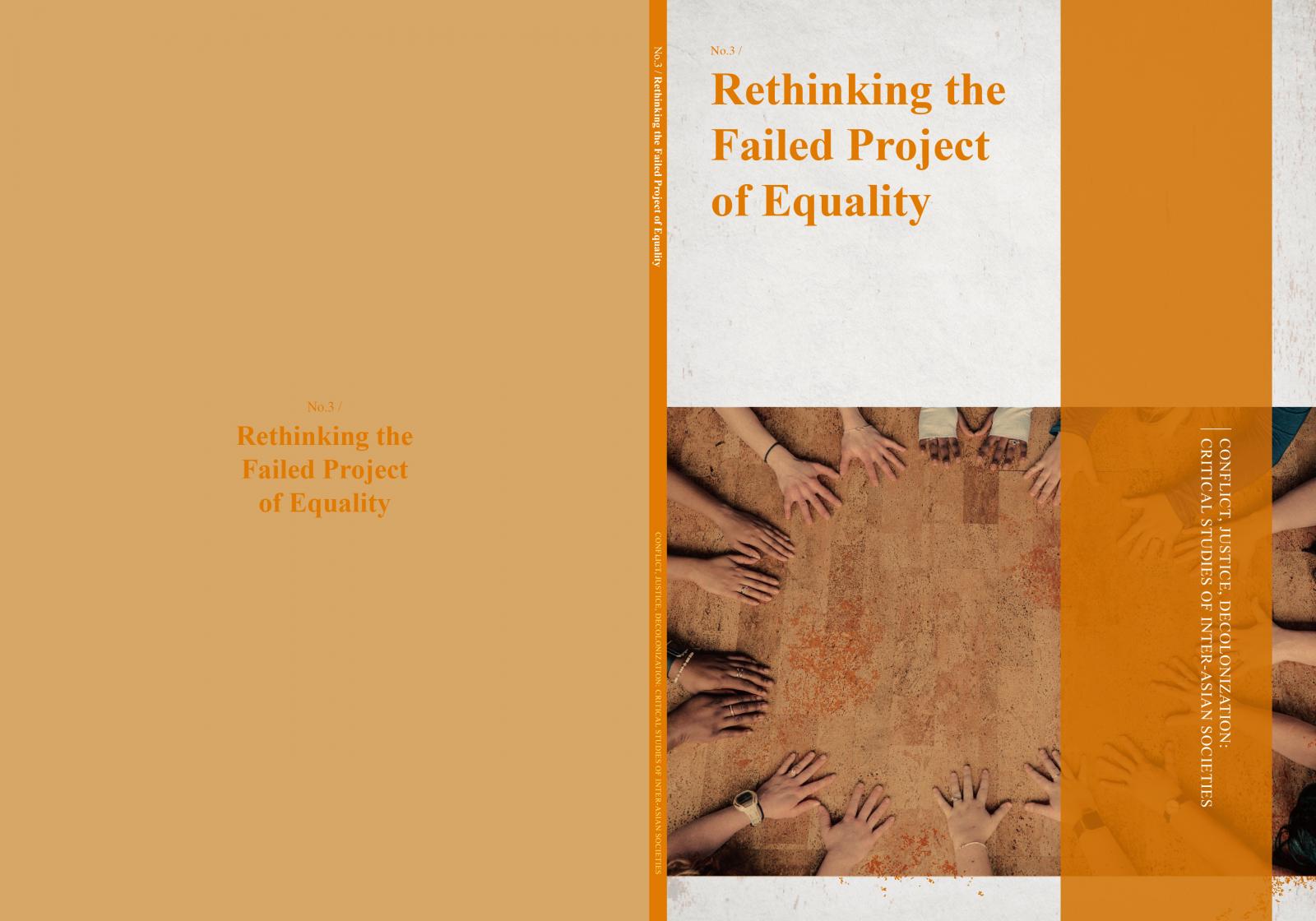

The CJD Project Booklet Publishing
2021-07-26

Pandemic Politics: Disruption and (Re)action
Introduction
At the time of writing the articles in this special issue of Pandemic Politics - Disruption and (Re)action, the world was still under the grip of the coronavirus. Infection rates were increasing sharply around the world as governments scrambled to contain the spread of the virus through measures such as curfews and lockdowns. Economies were on the verge of collapse as economic activity came to a halt. People took to the streets to protest against inequalities, poverty, and exclusion exposed by the pandemic. The articles in this special issue examine how the pandemic ‘hit the ground’ across Asia and other parts of the world. While reading these articles, we encourage readers to pay attention to how some of the trends and issues pointed out are not new at all. Rather, the virus seems to have brought these trends and issues to the foreground, along with the power regimes that kept them in the background.
Juan Alberto Ruiz Casado’s article focuses on his personal experience of the pandemic during his travel to India. His article reflects on how the pandemic enabled identity rearticulations, consolidated antagonistic discourses, and reinforced hegemonic struggles. The article by Li Qi discusses the experiences of Africans in South China during the pandemic. Her article exposes the racism experienced by many Africans as the pandemic, which in Juan Alberto Ruiz Casado’s words, consolidated antagonistic discourses. Dr. Poonam Sharma’s article discusses the migrant experience in India during the government-mandated lockdown. Her article shows how the pandemic exacerbated the already perilous conditions of migrant workers. Hanh T. L. Nguyen’s article shares the experience of a Vietnamese migrant worker in Taiwan. Her interview with the migrant worker provides a glimpse of how the pandemic affected migrant workers working in Taiwanese factories. Lungani Hlongwa’s article examines the effect of the pandemic on gig workers. His article shows how the pandemic added to the precariousness of gig workers who were on the frontline of the pandemic.
There are also articles in this issue that focus on how specific governments handled the pandemic. Nguyen Thi Trang’s article discusses the success of the Vietnamese government in handling the pandemic. Her article further shows how social media was used to raise public awareness and curtail the spread of the virus. On the other hand, Fernan Talamayan’s article explores an issue that was particularly endemic to the Global South. Looking at the case of the Philippines, his article discusses how the lack of data on the spread of the virus led to government indecision. Finally, Lim Jian Xing’s article examines how the Malaysian government handled the migrant situation. His article problematizes the framing of migrant communities as a “loophole in pandemic prevention.” The articles in this issue thus cover a wide range of topics under the umbrella of Pandemic Politics. We hope that readers will find them both insightful and motivating to conduct further research on pandemic politics.
Table of Contents
General Preface
About CJD
Pandemic Politics: Disruption and (Re)action

Social Movements in a World of Backsliding Democracy
Introduction
There is a growing sense that economic, environmental, political threats are encroaching ever further into the lives of certain groups and communities. Across Asia, there are endless examples of these encroachments that threaten the way of life for many. Those threatened and those sympathetic to them have demonstrated on the streets, written petitions, and formed coalitions to magnify their collective actions. Oftentimes, these demonstrations are met with violence, threats, arrests, and other forms of suppression. Yet, glimmer of hope for a better future keeps the demonstrators going. Sometimes they succeed, and other times they dont. The articles in this special issue examine some of these struggles as they play out in Asia and other parts of the world. to raise awareness of these struggles by bringing them to light. The focus on a range of struggles and issues, such as sources of friction, forms of mobilization, and state response, to mention a few.
There are articles that focus on Hong Kong by highlighting the configuration of social movements and how they compare to struggles elsewhere. Other authors discuss the forces behind nationalism in India and Tibet. These authors show how the people is constructed and how it is being threatened by what is perceived as external forces. Some articles discuss the issue of subalternity in Malaysia and India. These articles examine how the other are pushed to the margins of society where they are often deprived of their rights, violently separated from their land, and forced to conform to new and foreign ways of life. A volume on social movements would be incomplete without talking about democracy. In many cases, social movements arise in the context of undemocratic democracies. Some articles in this volume focus on this very issue of democracy, showing how in some countries it is being eroded by authoritarian governments, while in other countries it risks dividing the nation along “democratic” lines. Finally, there is a film review of the movie Joker where the author argues that the film is a grim reminder of our very own turbulent societies. The author dismisses media claims that the movie is too violent, arguing instead that the film forces us to conduct deep self-introspection.
Indeed, the topics covered in this issue vary widely in terms of focus and approach. The authors hail from a range of disciplines, including literature, history, and anthropology. As editors of this issue, we see such diversity as an opportunity to explore social movements and democracy from a range of perspectives and through multiple approaches. We hope that these articles will spur further discussions and questions on some of the issues discussed. More importantly, we hope that readers will enjoy reading them as much as the authors enjoyed writing them.
Table of Contents
1. The Non-Fictitious Destiny of Youth in Hong Kong
Qi LI, 2020
2. The Movements in Catalonia and Hong Kong: Democracy Advocacy or Examples of Global Illiberalism?
Juan Alberto Ruiz Casado, 2019
3. The Contemporary Narratives of the 1960s Social Movements in Hong Kong: Notes on Wong Bik-wan’s The Death of Lo Kei
IP Po Yee, 2019
4. Understanding the Discourse of Populism and Nationalism in India
Feeza Vasudeva, 2020
5. Burning Buddhists: Self-Immolation in Tibet as an Expression of Buddhist Nationalism
Hanne Van Regemortel, 2019
6. Of Interregnum and The Formation of Malaysian Subaltern Counterpublics
Zikri Rahman, 2018
7. 大洋東渡:威權時期巫統控制沙巴州政權動機與手段
李政豪, 2019
8. Prospects for Justice in India’s Socio-environmental Conflicts
Lungani Hlongwa, 2019
9. The Beijing-Manila Relations and the State of Philippine Democracy under Rodrigo Duterte
Fernan Talamayan, 2019
10. Joker: An Unflattering Mirror of Society
Hanh T. L. Nguyen, 2019

Introduction
Over the past centuries, we have witnessed emerging insights and projects that attempted to point out the origins of inequality and to free people from conditions of being enslaved, exploited, and colonized. Efforts in pursuit of a more equal world widely emerge in many aspects, such as popular movements, superstructure design, and technological progress.
Modern projects of equality circulated both in the forms of knowledge and practice in a reciprocal passage between the West and the non-West. For instance, in the post-war age, when former colonies successively pursued independence, the idea of universal emancipation in the third world influenced people in the West to fight against global imperialism structure as well as domestic elite groups. During the late 1960s, in the so-called global ’68 movements, students and workers in different countries protested for equal salary, women’s rights, liberty, and democracy. Strikes and mass demonstrations inspired intellectual concerns in specific disciplines like race, gender, labor, and post-colonialism.
The social revolution of the global ‘68 movements eventually faded out in the face of the domination of the neo-liberalism ideology, the collapse of the Soviet Union, the endless wars and conflicts in the Middle East, and the centralization of wealth and power around the world. Idealish welfare systems and social justice have been somewhat achieved in some high-income countries, however at the cost of increasing labor exploitation and environmental pollution in offshore developing regions. Currently, the global situation is worsening as a new wave of populism and racism towards migrants and refugees is rising everywhere.
This special issue provides diverse observations on the disappointing fact that the institutionalization of inequalities still dominates our societies. The articles in this issue covered recent gender issues in Vietnam and South Korea, the capitalist agendas behind the Rohingya refugees crisis, the rise of white nationalism in the US, transborder migration from Indonesia to Taiwan and domestic migrant workers in China, the paradox of social integration and inclusion in the Philippines, and decolonization of knowledge production in translation from the West to the Sinophone world. With an intellectual background in humanities, our writings follow the utopian proposition of equality advocated by research of feminism, post-colonialism, and migration studies. Here lies the entanglement between knowledge production and social intervention, and our question remains: Is it still possible to pursue a world of mutual respect and universal equality?
Table of Contents
1. The #MeToo Movement and the Potential of Feminist Digital Activism Combat Sexual Harassment in Vietnam
2. Cyber Harassment, Misogyny, and the South Korean Online Sphere
3. Transgression of Female Stereotypes and Empowerment of Women in The Third Wife
4. The Geostrategic Location of Myanmar and its Influence on the Rohingya Conflict
5. Why has American White Nationalism been on the Rise in Recent Years?
6. Racialized Migration: Indonesian Fishers on Taiwanese Fishing Vessels
7. Freedom to Move, No Freedom to Settle: The Labor Migrancy Dilemma in Contemporary China’s Urbanization
8. Borders and Museums: Exclusion through Social Inclusion
9. Decolonizing Knowledge: Casals’ Reception Histories in the Sinophone World within the Global Cold Wat Context
近期新聞 Recent News


Report|Conceptualizing Digital Governance in the Age of Semiconductors: A Critical Review of Keywords and Concepts
2025-12-03
more
Report| Book Launch: Nyanyian di Perantauan: Kumpulan Lirik Lagu Pekerja MigranIndonesia & Laporan Skena Musik di Taiwan 2024
2025-11-22
more